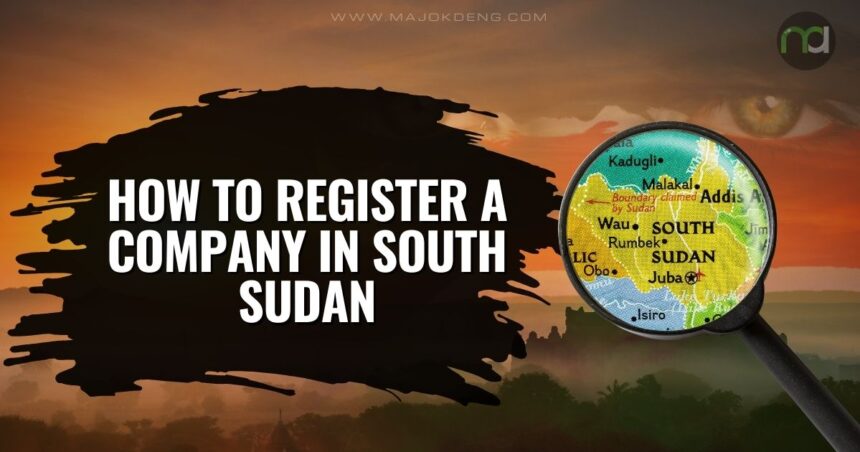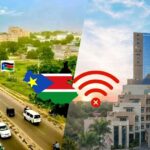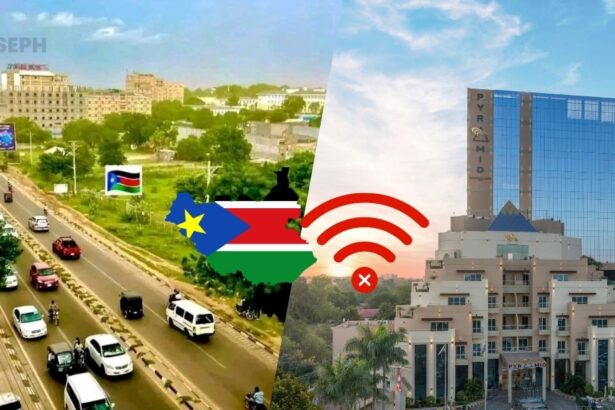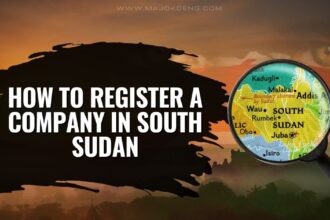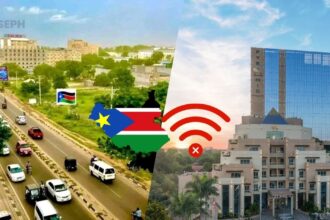Registering a company in South Sudan involves visiting multiple government offices in Juba and submitting physical documents. The Ministry of Justice now offers an online portal, but it only handles parts of the process, and most steps still require showing up in person. The entire registration takes 2-6 weeks depending on your preparation and which type of company you choose.
The reality is messier than official guidelines suggest. The U.S. State Department reports that no single window registration exists, meaning you visit the Ministry of Justice, Ministry of Trade and Industry, Ministry of Finance, and South Sudan Revenue Authority separately. Local lawyers charge around $1,000 to handle this maze, and many businesses find it worth the cost to avoid repeated trips and rejected applications.
Choose Your Company Type
The Companies Act 2012 allows four main company types, each with different requirements and costs. Understanding which one fits your business saves time and money later.
A Private Limited Company (Ltd) works for most small businesses and family operations. You need at least two shareholders, and your liability stays limited to what you invest. Registration costs around SSP 50,000-100,000 depending on share capital, and the process typically takes 7-14 business days once documents are submitted. This is what most local entrepreneurs choose.
Public Limited Companies (PLC) can raise money from the public but face stricter rules and higher costs. You need minimum share capital of SSP 1 million and at least seven shareholders. The registration fee alone runs SSP 200,000-500,000, plus ongoing compliance costs. Only consider this if you plan to sell shares publicly or need the credibility for large contracts.
Foreign companies already registered elsewhere must register locally before operating. You need certified copies of your original incorporation documents, a local representative, and proof of good standing from your home country. Foreign investors cannot own 100% of a company, they must give at least 31% to South Sudanese nationals, though enforcement varies by sector.
Non-profit companies limited by guarantee suit NGOs and charities. You cannot distribute profits to members, and registration requires approval from the Relief and Rehabilitation Commission on top of standard Ministry of Justice procedures. The process often stretches to 4-6 weeks due to extra scrutiny.
Prepare Your Documents
Getting documents right the first time prevents weeks of delays. Every company needs these basics ready before starting.
Your Memorandum and Articles of Association (MoA and AoA) form the core documents. These explain what your company does, list shareholders, outline decision-making processes, and set operational rules. Most people copy templates from other companies, but generic versions often get rejected. Lawyers charge SSP 20,000-50,000 to draft proper ones, or you can find someone who recently registered to share theirs.
Each director and shareholder provides a South Sudan National ID or passport copy, plus two passport photos. The photos must be recent, and photocopies need to be clear. Blurry copies get rejected immediately. If shareholders include other companies, you need their certificates of incorporation and board resolutions authorizing the investment.
Your business address needs proof through a lease agreement or letter from the landlord. Government offices want to see a physical location, not just a P.O. Box. If operating from home, get a letter from your local chief or payam administrator confirming the address.
Foreign investors face extra requirements. Passport copies need notarization from your embassy, and corporate documents require authentication from South Sudan’s embassy in your country. This authentication process alone can take 2-3 weeks if done abroad, so start early.
Reserve Your Company Name
Name reservation happens at the Business Registry inside the Ministry of Justice compound in Juba. Arrive early, around 7:30 AM, because the office gets crowded by 9 AM, and they sometimes stop accepting applications by noon.
Write a simple letter requesting name reservation with three name options ranked by preference. The registrar checks these against existing companies while you wait. Common names like “General Trading” or anything with “National” often get rejected. Creative, specific names pass more easily. The fee is SSP 5,000-10,000 paid in cash at the registry.
Your approved name stays reserved for 30 days. If you miss this deadline, you start over with a new application and fee. Some people reserve names multiple times before completing registration because gathering other documents takes longer than expected. The name reservation certificate is just a simple stamped paper, but guard it carefully since you need the original for the next steps.
Submit for Incorporation
With your reserved name and prepared documents, return to the Ministry of Justice for submission. Bring three copies of your MoA and AoA, all signed by directors and shareholders. The registry staff review these documents for compliance with the Companies Act 2012.
Common rejection reasons include mismatched shareholder names between documents, unclear business objectives, or missing signatures. If rejected, they usually tell you what to fix, but each resubmission means another day waiting in line. Having a lawyer review documents beforehand reduces rejection risk significantly.
Once accepted, you receive an invoice for registration fees. The amount varies based on authorized share capital, typically ranging from SSP 50,000 for small companies to SSP 500,000 for larger ones. You cannot pay at the Ministry, instead, you take the invoice to Equity Bank or Nile Commercial Bank. Keep the payment receipt safe as losing it means requesting a duplicate through a lengthy process.
Return to the registry with your payment receipt and wait for processing. They promise 7-14 business days, but it often stretches to three weeks during busy periods. You can check status by visiting in person, as phone calls rarely get answered. When ready, you collect your Certificate of Incorporation and stamped MoA/AoA documents.
Get Your Tax Registration
The South Sudan Revenue Authority issues Tax Identification Numbers from their office near Juba Bridge. You cannot operate legally without a TIN, and banks will not open business accounts without it. The good news is TIN registration is faster than company registration, usually taking 1-2 days if your documents are complete.
Bring your Certificate of Incorporation, stamped MoA and AoA, ID copies for all directors, and proof of business address. They create a tax file and issue a TIN certificate on the spot if everything checks out. The service is technically free, though some businesses report requests for “facilitation fees” of SSP 5,000-10,000 to expedite processing.
Your TIN becomes the key identifier for all tax matters. You need it for filing returns, paying taxes, clearing imports, and applying for government contracts. Keep multiple copies of the TIN certificate as you will need to submit it repeatedly to various offices.
Obtain Operating Licenses
Every business needs an operating license from either Juba City Council for local operations or the Ministry of Trade and Industry for nationwide business. This license proves you can legally conduct business in South Sudan.
For Juba City Council licenses, visit their office with your incorporation certificate, TIN, lease agreement, and completed application form. The annual fee ranges from SSP 20,000 for small traders to SSP 200,000 for large businesses. They issue licenses valid for one year, requiring annual renewal.
Ministry of Trade licenses follow similar requirements but cost more, starting around SSP 100,000 annually. Processing takes 3-5 days at the ministry versus same-day at city council. Choose based on where you plan to operate, though many businesses start with city licenses and upgrade later.
Specific sectors need additional permits. Hotels need tourism board approval, restaurants require health certificates, construction companies register with the Engineers Board, and financial services need Bank of South Sudan licensing. Each adds weeks to the process and thousands in fees. Research your sector’s requirements early to avoid surprises.
Open Your Business Bank Account
Once registered, you need a business bank account to operate legally. Banks require your Certificate of Incorporation, TIN certificate, trade license, board resolution naming account signatories, and IDs for all signatories. Everyone authorized to sign must visit the bank in person, which becomes surprisingly difficult when coordinating multiple directors’ schedules. Each bank has different requirements and fees, so choosing the right one matters.
| Bank Name | Processing Time | Minimum Deposit | Monthly Fees | Best For |
|---|---|---|---|---|
| Equity Bank | 1-2 days | SSP 50,000 | SSP 1,500 | Digital banking, multiple signatories |
| KCB Bank | 3-5 days | SSP 100,000 | SSP 2,000 | NGOs, foreign currency needs |
| Kush Bank | 2-3 days | SSP 30,000 | SSP 1,000 | Local businesses, friendly service |
| Cooperative Bank | 2-4 days | SSP 50,000 | SSP 1,500 | Trading companies, rural branches |
Banks require your Certificate of Incorporation, TIN certificate, trade license, board resolution naming account signatories, and IDs for all signatories. Everyone authorized to sign must visit the bank in person. For companies with multiple directors, coordinating schedules becomes surprisingly difficult.
Timeline and Total Costs
The full registration process typically runs 4-8 weeks from start to finish, though well-prepared applicants with legal help can complete it in 2-3 weeks. Costs vary significantly based on company type and capital, but expect these minimums:
Name reservation costs SSP 5,000-10,000. Company registration fees range from SSP 50,000-500,000 depending on share capital. Legal fees for document preparation run SSP 20,000-50,000 if you do it yourself with templates, or $1,000 (about SSP 600,000) for full legal service. Trade licenses cost SSP 20,000-200,000 annually. Sector permits add SSP 50,000-500,000 depending on the industry. Bank account opening requires minimum deposits of SSP 30,000-100,000.
Total minimum budget: SSP 200,000-300,000 for a basic company doing general trading. Specialized businesses or those needing legal help should budget SSP 1-2 million.
Common Problems and Solutions
Documents get rejected for minor issues like mismatched names or unclear objectives. Solution: have someone who recently registered review your documents, or pay a lawyer for document preparation.
Offices run out of forms or close unexpectedly. Call ahead when possible, or send someone to check before making the trip yourself. Tuesday through Thursday mornings typically work best, avoiding Monday crowds and Friday early closures.
Foreign ownership restrictions surprise many investors. While the law says foreigners cannot own more than 69%, enforcement varies. Some sectors like telecommunications strictly enforce this, while others ignore it. Get legal advice specific to your industry before structuring ownership.
The online portal promises convenience but frequently crashes or rejects applications without explanation. Most businesses still find physical submission more reliable despite the hassle. If you try online registration, always have physical backup documents ready.
Processing times stretch beyond promised deadlines. Build buffer time into your business plans. Telling partners you will be operational “next month” usually means disappointment. Promise three months and deliver early if lucky.
After Registration: Ongoing Requirements
Registration is just the beginning. You need to file monthly tax returns even with no income, renew licenses annually, and maintain proper books for tax audits. Many businesses celebrate getting registered then face penalties months later for non-compliance with ongoing requirements.
Consider joining the South Sudan Chamber of Commerce for networking and support navigating bureaucracy. Membership costs SSP 50,000 annually but provides access to other business owners who share experiences and solutions.
The process frustrates everyone, but thousands of businesses successfully register each year. Those who prepare thoroughly, budget adequately, and maintain patience get through it. Once registered, you join South Sudan’s formal economy with access to banking, legal contracts, and growth opportunities unavailable to informal businesses. The weeks of frustration pay off when you hold that Certificate of Incorporation, proof that your business officially exists and can operate legally throughout South Sudan.

